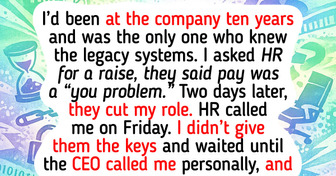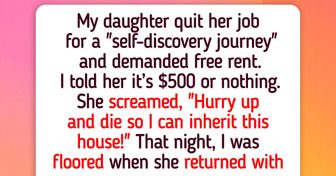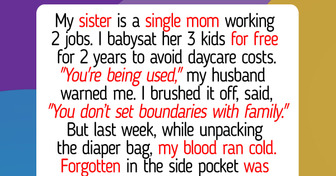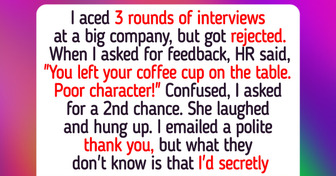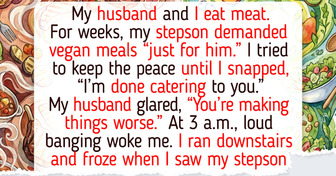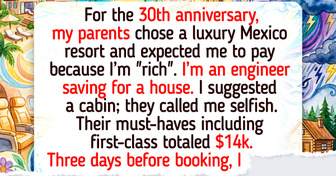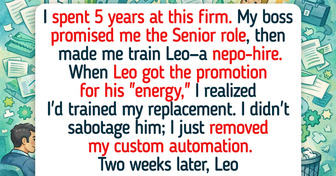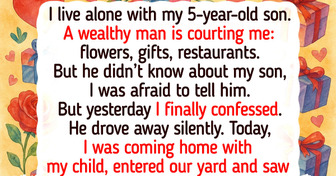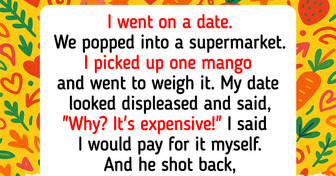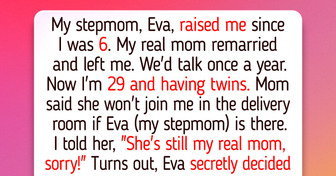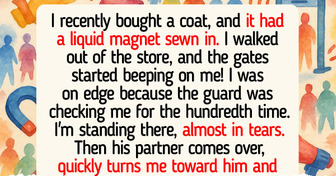My Stepdaughter Shut Me Out of Her Baby Shower — My Husband’s Choice Left Me Broken

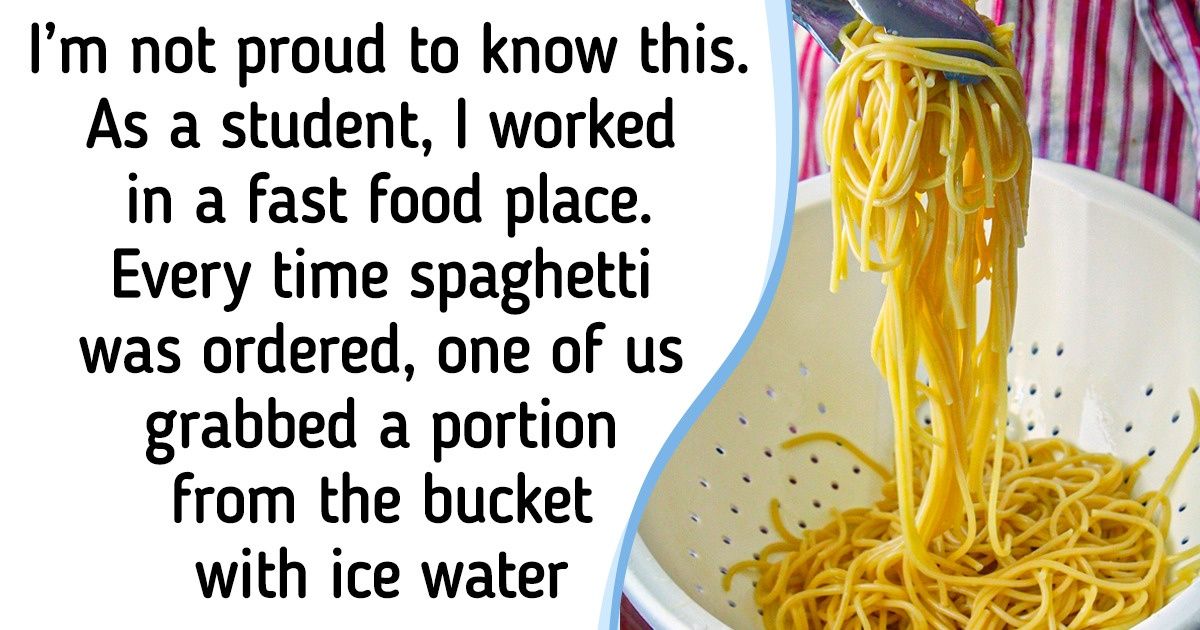
A visit to a restaurant or a cafe is no longer a unique or special occasion, unlike a visit to the opera, for example. People hold business negotiations, dine, celebrate birthdays, or just meet friends there. Restaurants have become a regular part of our life, but some features of their work still remain a mystery to us.
At Bright Side, we decided to find answers to some of the “why” questions that restaurant guests usually ask.
When a group of people finishes dinner at a restaurant and it’s time to pay, it turns out that everyone wants to pay their bill separately. At this moment, a range of conflicting emotions can be seen on the waiter’s face. This wouldn’t have happened if the guests had warned the waiter in advance that they would need separate bills. Because now the waiter will have to recall the order of each guest, to form pre-checks in the program, and to make several transactions instead of one. It takes a lot of time and increases the chances of them making an error.
There are several reasons why restaurants tend to use big plates. Food on these plates looks like it won’t satisfy you, so you’ll be tempted to order more food. Besides, small portions on huge plates let the guests know that they are eating refined food.
If you receive free bread and butter before ordering, this is by no means a broad gesture, but rather a pragmatic calculation. In fact, restaurants are much more interested in regular customers, than in one-time visitors, even with a bigger bill amount. Free bread demonstrates care and hospitality that increases guests’ loyalty. Besides, with some cuisines, bread is an integral part of the serving, for example in French cuisine where it is used to dip into sauces on the plate. Finally, bread gives the staff some extra time.
The pricing policy of restaurants is often criticized. But the price of a dish should be at least 3 times higher than the cost of the food. The remaining 2/3, in theory, go to wages, taxes, rent, depreciation costs, and, if you’re lucky enough, you’ll still have net profit. Or not.
When guests ask to put one portion on 2 plates, you can hear the chefs cry somewhere in the kitchen. And it’s not about the fact that it brings the restaurant less money, although, of course, this factor also plays a certain role. The problem is that this order, especially if there are many guests in the dining area, destabilizes the work of the kitchen, leading to additional operations with scales, appliances, and checks. Besides, half of the portion on the plate looks unpresentable, so a chef has to add a side dish or salad, or something else. Therefore, many restaurants charge additional fees for these orders.
There is a common belief that business lunches are made of ingredients that would otherwise go into the trash bin. This way, a restaurant tries to make at least something out of them. Fortunately, this is not the case. The low price can be easily explained. Bootstrapping has become more and more common among businesses and people arranging the lunches search for as cheap a deal that they can find.
It often happens that there are still 15 minutes left before a restaurant’s closing time, but the waiter doesn’t want to take any new orders. The reason is that the cooking personnel, most likely, have already started cleaning the kitchen, and they’re not going to unpack all the containers, turn on the ovens, the grill, and deep fryer, and then wash them all over again. Besides, they want to go home as soon as possible after their 12-hour shift.
I’ve seen a lot of customers sigh in relief because they made it in the door with 2 minutes to spare. I mean, we still served them, but everything was kind of hasty and sloppy because the kitchen had to get out food that had already been put away and they were trying to hurry up so they could leave. I had one woman exclaim, “Oh my god, why is everything coming out so fast!?” because the appetizers, salad, soup, and entree came within minutes of each other. © JaineLaine / Reddit
Despite the fact that it is 2020, venues are still not fond of credit and debit cards. Restaurants depend on cash because they need to give change to guests, buy ingredients, and drinks every day, and pay the personnel at the end of the shift. Cash is immediate payment, while it can take up to 3 days for electronic money to reach the restaurant’s bank account. Since the main revenue of a venue falls on Friday, this means that the owner (and the rest of the personnel) of this place may not see the money until Wednesday of the next week. And, of course, tips in cash are easier and more pleasant.
Don’t ask a waiter to recommend a dish for you to their liking, even if you don’t know what you want. Waiters don’t always try dishes from the menu. Besides, they can’t guess your preferences. Therefore, in the best-case scenario, you will be advised to order either the most popular dish or something that needs to be sold as soon as possible before it goes bad. In the worst case, there is a chance you will be recommended with the most expensive dish on the menu because it will increase the amount of the bill, and therefore of the tip.
Sometimes, the waiting time for a dish (that you could cook at home in 15 minutes) can take 45 minutes in a restaurant. Of course, this happens not because chefs cook 3 times slower than you. There is a queue of orders, and there is also a rule according to which dishes should be served at the same time. In fact, one of the main tasks of the kitchen is to coordinate all actions in time in such a way that even with a full seating, dishes are prepared and served in the right order, albeit with some delay.
Everyone wants to sit in a separate booth, by the fireplace, or by the window, and no one is thrilled with the prospect of having dinner at a table near the exit. In most cases, the hostess will try to take your wishes into account , but there are certain limitations. Don’t expect that on a Friday night, a couple will be seated at a table that is meant for 6 people. Even if it’s empty, this doesn’t mean that it won’t be taken in 30 minutes or that it’s not already reserved. Besides, the hostess tries to seat guests in a way so that all waiters have approximately the same number of tables to serve.
Another interesting question: how do chefs manage to cook a baked shank or beef stew in 20-30 minutes, if the recipe says “bake/simmer on a low heat for 5 hours”? The most honest restaurants warn that this kind of food must be ordered in advance, preferably the day before the visit. But the most cunning ones use pre-cooked food. You can significantly reduce the cooking time of a complex dish if you start cooking it in advance, and freeze it or pack it in a vacuum bag 20 minutes before the end of cooking.
I’m not proud to know this. As a student, I worked in a London fast food place which was pretty popular among young people. The spaghetti Bolognese was actually renowned. We boiled the pasta in the morning, drained it, and conserved the pasta in buckets filled with ice water. Every time spaghetti was ordered, one of us grabbed a portion, put a ladle of sauce and a handful of cheap cheese on top, and microwaved it for 3 minutes. © Ian De Pagie / Quora
There are definitely many more restaurant secrets. Tell us in the comments below about what other questions keep you up at night.

